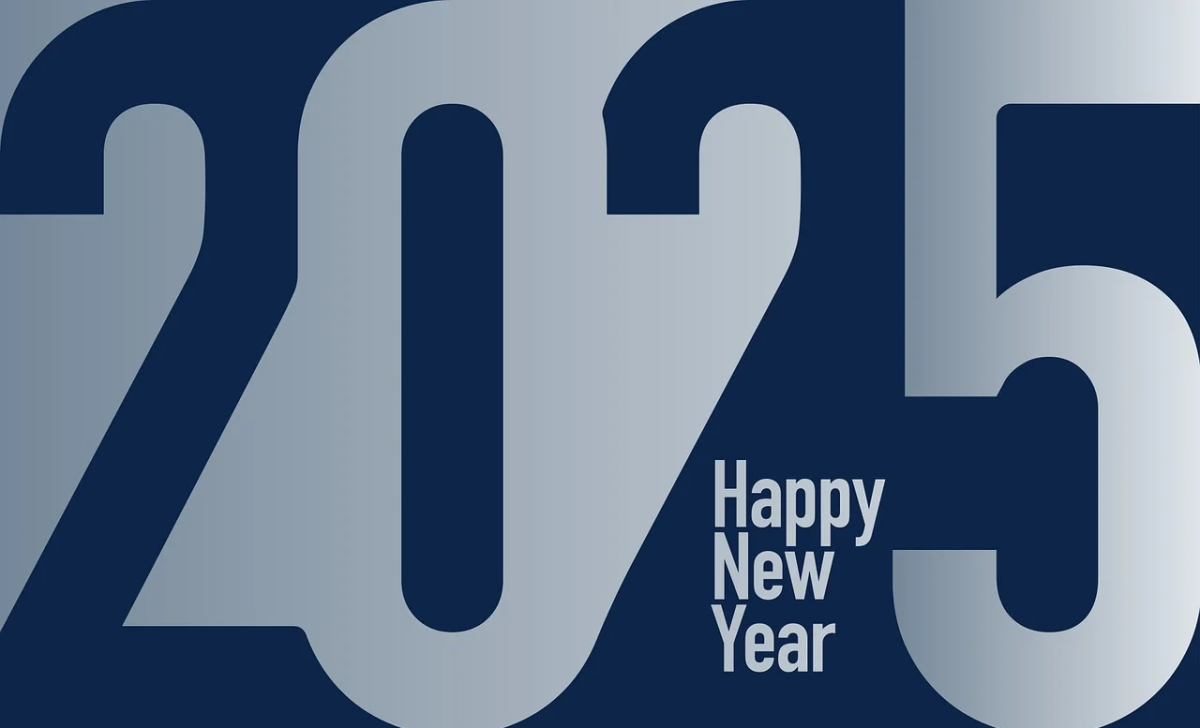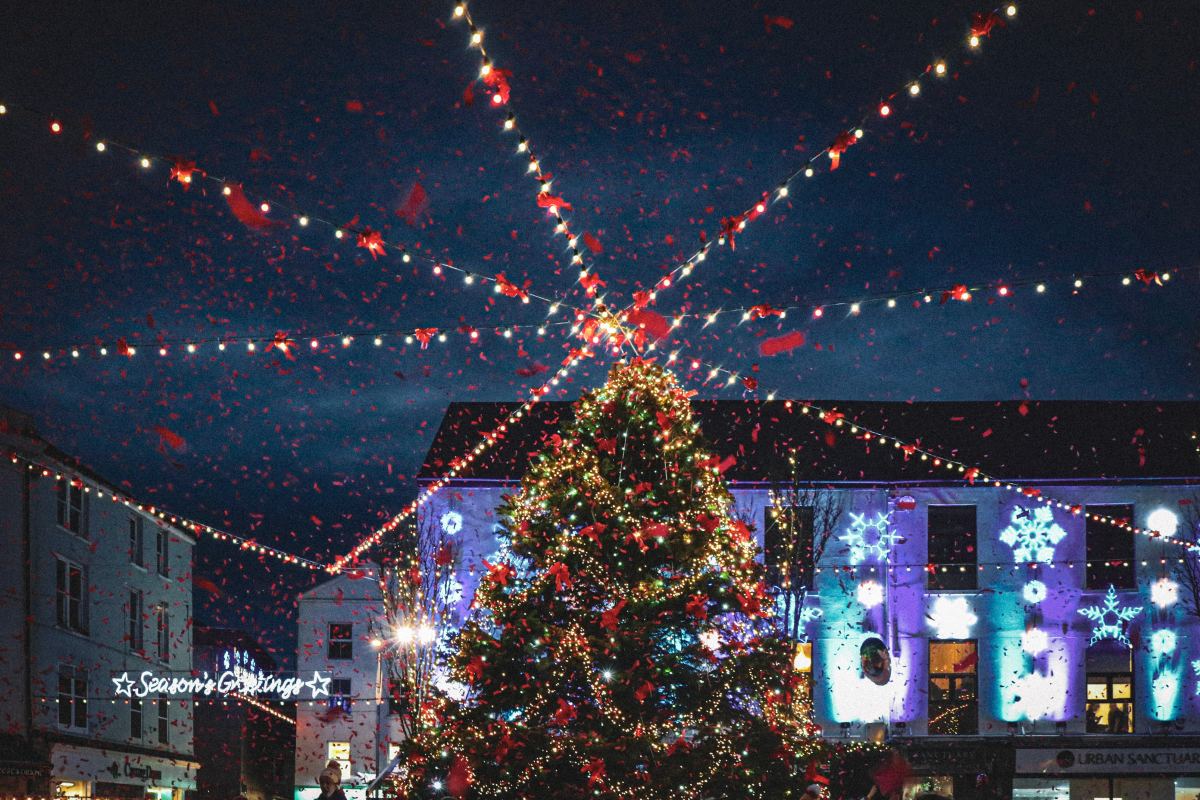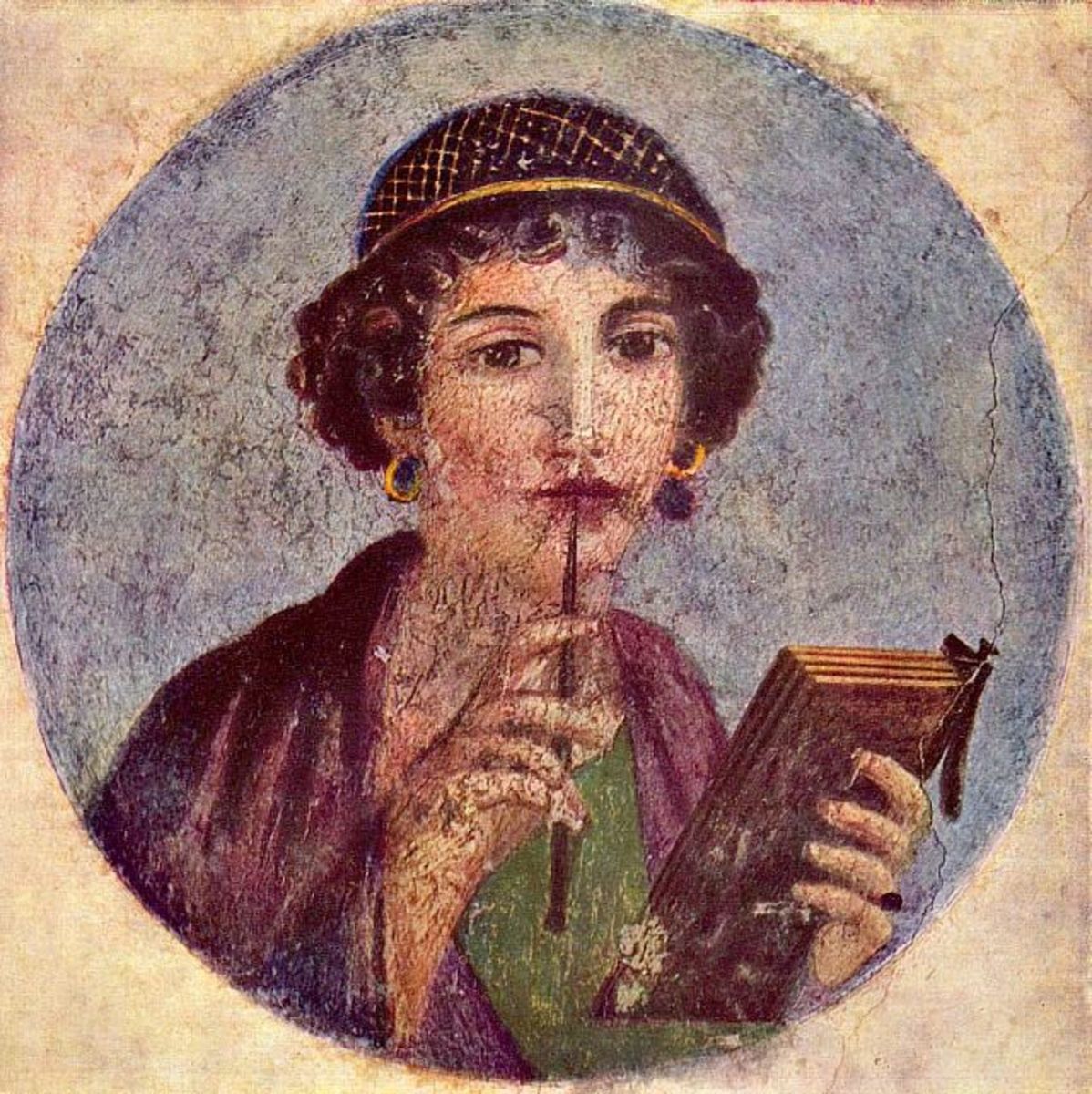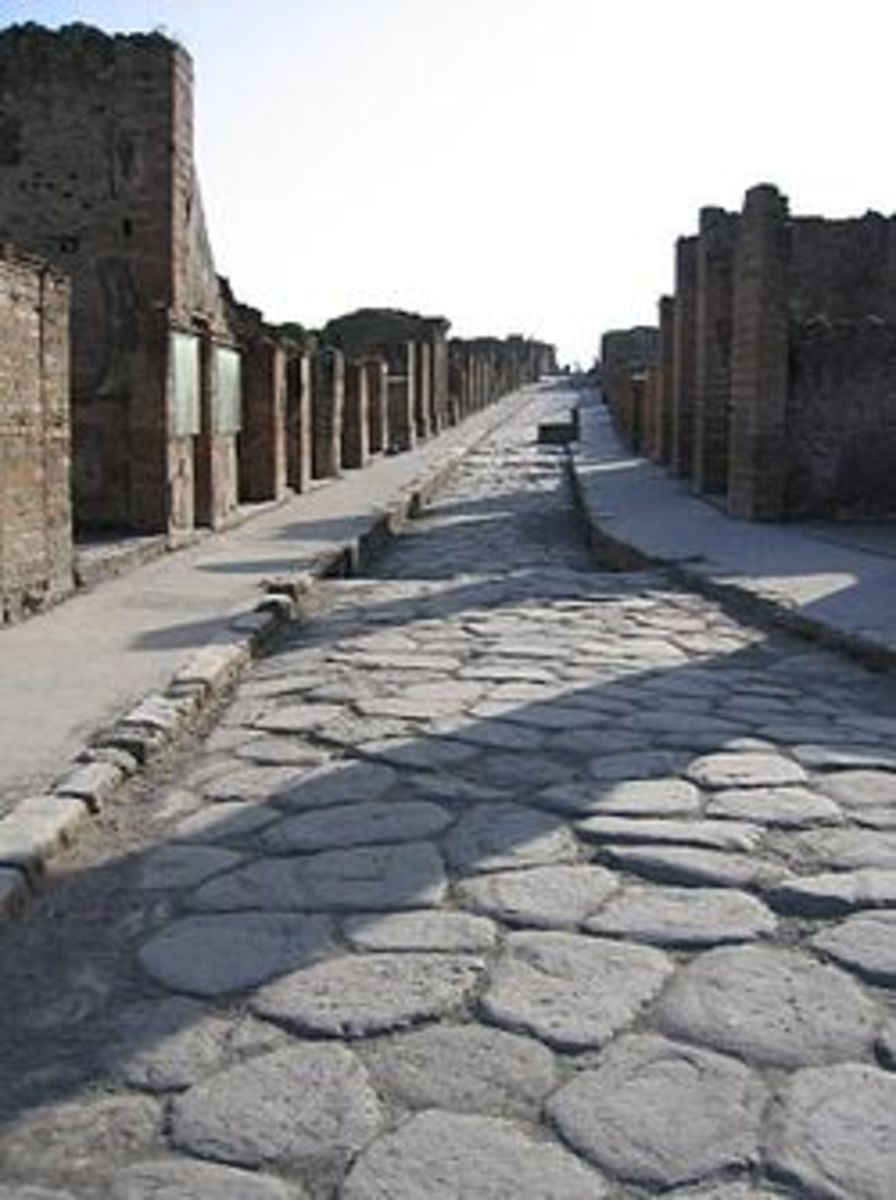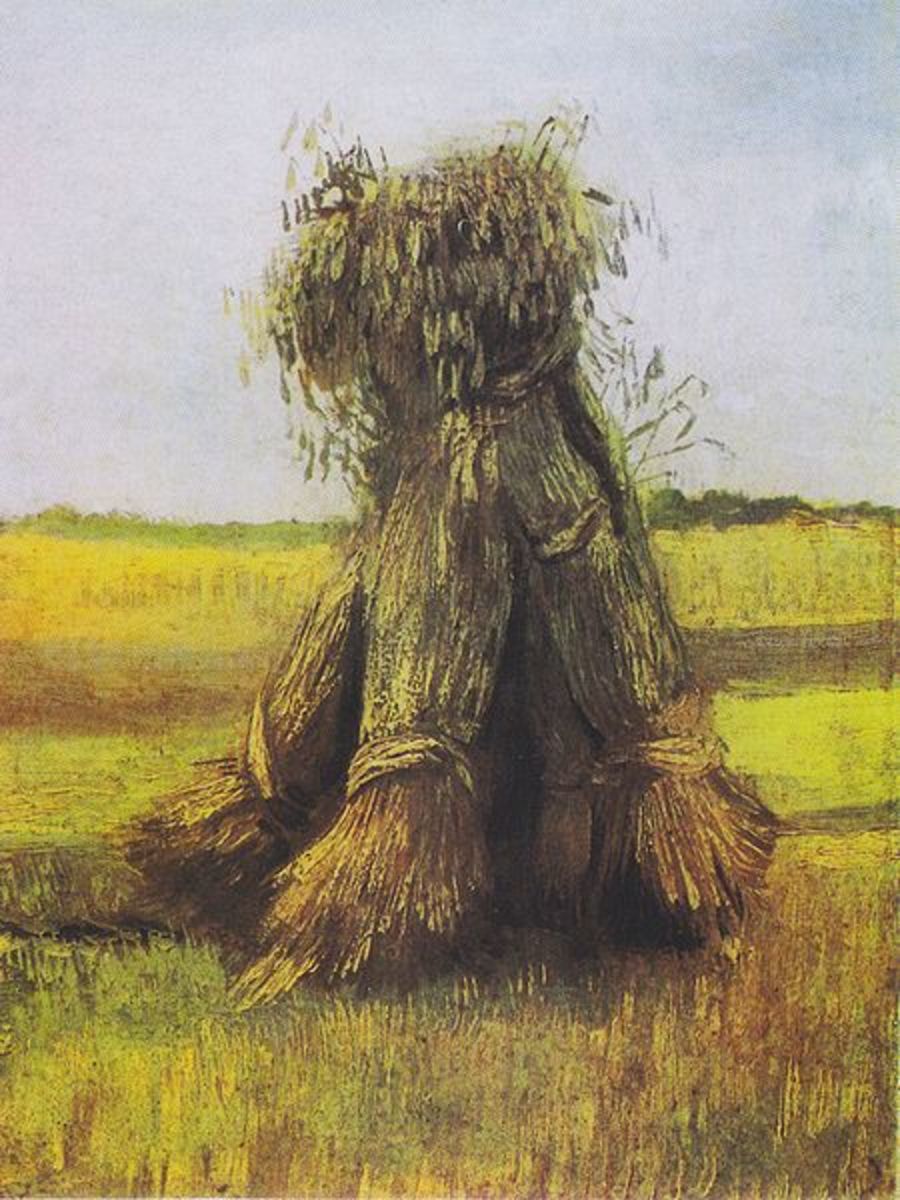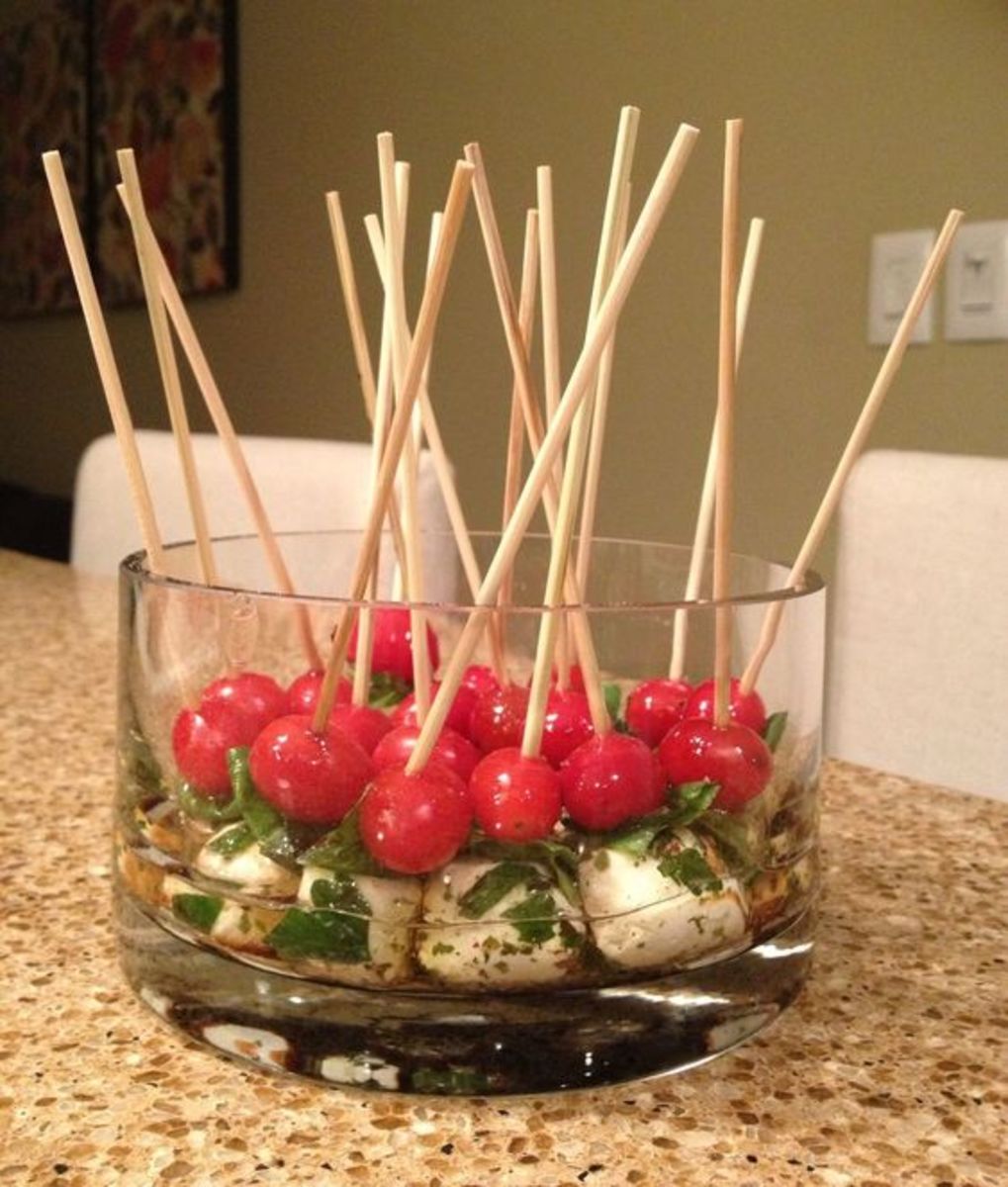New Year Customs and Traditions in Other Times
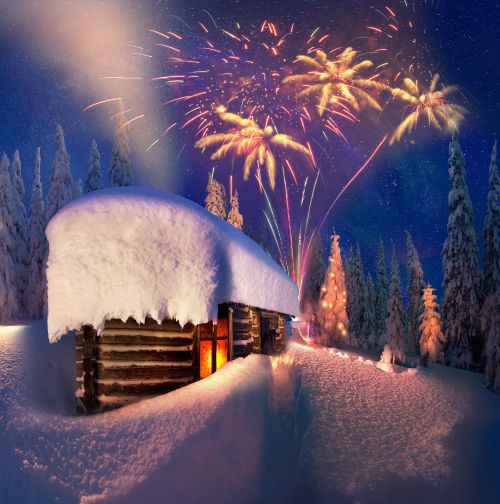
Why do we Celebrate the New Year?
Whatever the custom, whatever the country, no matter when or where we live, the New Year signifies a new start, a new life.
We take the opportunity to throw out the mistakes of the past year and start anew. We wish each other good luck and promise ourselves to do better in the coming twelve months.
Church bells ring, car horns blare, people shout, sing out loud and throw confetti at the stroke of midnight to drive away evil spirits. Happy New Year!
Why 1st January?
The day we celebrate as New Year's Day was not always the first day of January. It was the arbitrary date chosen by Julius Caesar in the year 46 BCE.
Ancient Rome
The New Year in Ancient Rome
The Romans gave each other New Year gifts of branches from sacred trees.and gold-covered nuts or coins imprinted with pictures of Janus, the god of gates, doors, and beginnings.
Janus, fittingly, is portrayed with two heads - one looking forward, the other looking back. He symbolised the break between the old and new.
But new year festivities are older than Rome. The Celebration of the New Year and the concept of starting afresh is the oldest of all holidays.
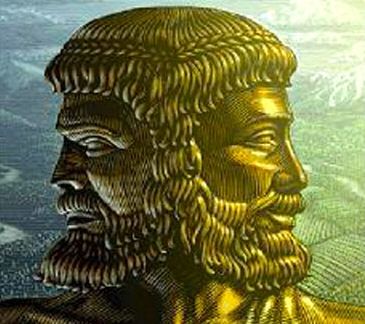
Janus, God of Doorways
Symbol of the New Year
Janus is the god of gates, doors, doorways, beginnings, and endings, we find him still in modern culture in his namesake, the month of January.
Doors and gateways look in two directions, so Janus looks both backward and forward at the same time. With his two faces, one regarding what is behind and the other looking toward what lies ahead, Janus represents the contemplation of an old year while looking forward to the new.
Janus symbolises change and transitions, the progression of past to future, of one condition to another, of one vision to another, of one universe to another. He is the middle ground between barbarity and civilisation, rural country and urban cities, and the doorway between youth and adulthood.
As the Guardian of Exits and Entrances, Janus also represents beginnings and, apart from planting season and harvest time, Janus oversees marriages and coming-of-age transitions
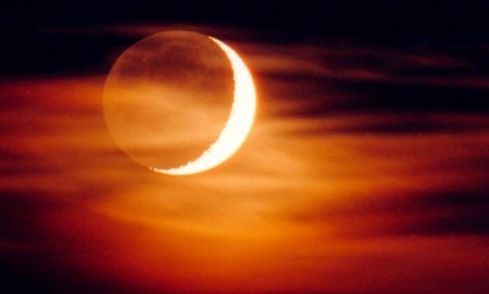
Babylon
The New Year in Ancient Mesopotamia
Roughly 2000 years before our Common Era (AD), the Babylonian New Year began with the first New Moon after the Vernal Equinox.
This is roughly about our Easter and was the season of rebirth, of planting new crops, of blossoming and renewal.
The Babylonians swore oaths, made promises and New Year Resolutions at this time. The most popular resolution was to return borrowed farm equipment.
Please make sure you return any you may have borrowed!
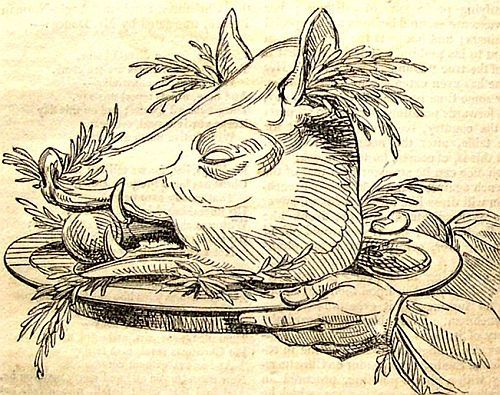
Northern Europe
The New Year followed the Winter Solstice
Oaths and sacred promises were made in the Northern European tradition. The sonartoltr, an atonement boar, was sacrificed during Yule festivities.
On the night it was to be killed, it was considered so holy that vows were taken with hands laid over its bristles. Boasts were made upon the boar's head, and these boasts had to be truthful.
The god Freyr hated liars, and those who made false boast soon brought down his wrath. Remember this when you make your own New Year resolutions - the last thing you want is the wrath of Freyr on your head.
Once the oaths had been sworn, the boar was sacrificed in the name of Freyr and the feast of roast boar flesh began!
The Boar
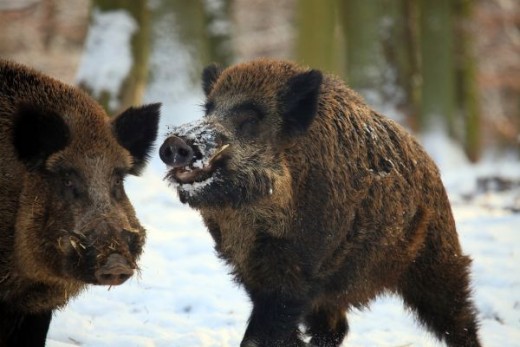
The Sacrifice of the Boar
The wild boar, ferocious ancestor of the domesticated pig, is now only to be found in remote areas of Europe, but once he ruled the dark places in the great woodlands.
It's hard to imagine today the terrors of the wild wood, where the bear and the boar awaited the defenseless traveler. But it was not so long ago.
Now, from the safety of our sterilised cities, our memories of the wild boar and of the hunt par force are confined to a tradition of Christmas.

There's More to the Boar
The deadly strength of the wild boar suddenly erupting from the darkness was a symbol for Boudicca and the Iceni in their revolt against Rome and a symbol too, for Richard III, one of England's most controversial kings.
In mythology the Boar represents the spirit of abundance and prosperity, of fertility and wealth. Fierce, strong and dangerous, he had a special place in the heart of a warrior. His ritual sacrifice at the darkest time of the year would guarantee bountiful crops in the next harvest, victory in battle and the vanquishing of the old enemy - the long dark nights of winter.
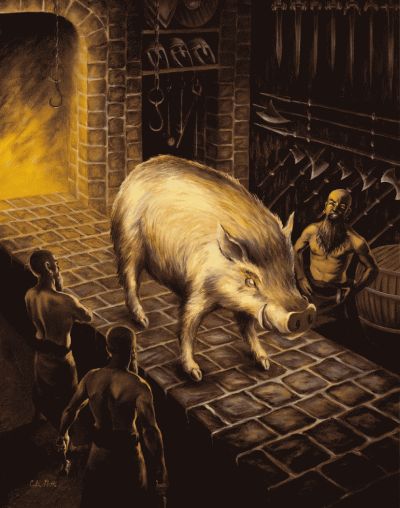
Gullinbursti the Golden Boar
The beautiful golden twins Freyr and Freyja of Norse mythology are connected with the boar.
Freyr had a magical gold boar named Gullinbursti which had been forged by a group of dwarves.
Gullinbursti was able to run as fast as any steed and which, gleaming as gold in the shadows, could repel shadow and turn night into day.
So we're talking about solar attributes here, and the midwinter sacrifice could also symbolise the death of the old sun.
Ancient Greece
Around the years of 600 BCE, the Greeks paraded a baby in a basket to signify the New Year. The infant symbolised the god Dionysos, whose annual rebirth guaranteed fertility and creativity for the year.
In modern times, New Year’s Day is also celebrated as the Feast of Saint Basil, one of the forefathers of the Greek Orthodox Church. Also known by the name of Protochronia, Greek New Year celebrations is a mix of traditional rites and modern frolic. One of these customs is the New Year's Day Cake - the Vaselopita
- Vaselopita - Greek New Years Cake Recipe
Traditional Greek New Years Day bread. Served as a coffee cake for breakfast. Also the person who receives the gift inside gets good luck for 1 year!

Wherever you are in the world, farewelling of the old year was originally done out of fear of the evil spirits who were let loose on the last day. So we make lots of noise to drive away these spirits away in order to start the Year unharmed and unimpeded.
In traditional belief, the luck you will have throughout the coming year is determined by what you do or eat on the first day of that year.
For this reason, it's common to celebrate the first few minutes of a brand new year in the company of family and friends. I certainly intend to!
What do you think?
Should we scrap New Year? We're not superstitious peasants anymore
© 2008 Susanna Duffy

